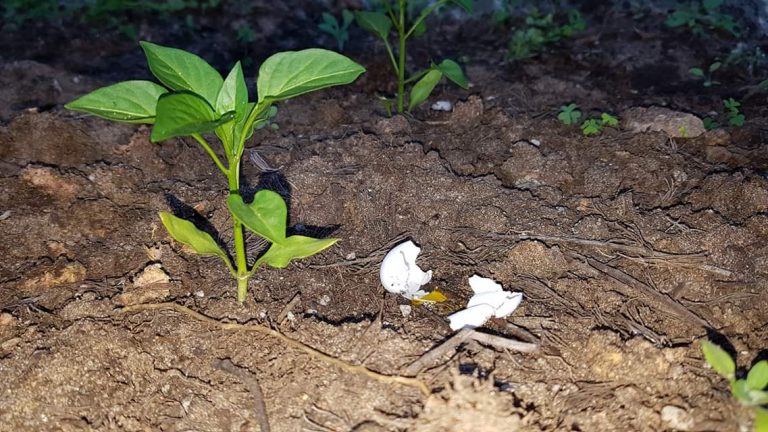I want to say I’m proud of the schoolkids who protested for action on the climate emergency we live in, but instead I’m depressed by the fact that they have to protest at all. I mean, of course I am proud that thanks to Greta Thunberg, the youth of today were given an opportunity to make the voices heard, but I’m upset that they’re still not being taken seriously. And I’m depressed that this climate emergency isn’t being taken seriously.
We get told how we can reduce our own impact during this climate emergency – reduce plastic use, eat less meat, grow your own fruit and veg, have more ‘doona days’, continue tearing down the establishment one meme at a time –, but no matter how many of us refuse to use straws, or how many reusable coffee cups we have in our cupboard, it won’t ever be enough to reduce the impact of climate change on a grand scale. Yes, there are micro-operations being put in place around the world (for more on that, go and see Damon Gameau’s new documentary, 2040, when it lands in theatres), but there simply isn’t enough to make genuine change. Yet.
Glynis Ratcliffe writes about eco-anxiety in this informative article here, and to quote from that piece:
Eco-anxiety hasn’t yet been listed in the American Psychiatric Association’s Diagnostic and Statistical Manual of Mental Disorders (a.k.a. the DSM-5), which is considered the gold standard for mental health assessment. But the American Psychological Association — in collaboration with environmental charity ecoAmerica — produced a 69-page report in 2017 pointing to the impact climate change, in all its manifestations, can have on the human psyche.
Eco-Anxiety Isn’t New, and It’s Time to Deal with It – Glynis Ratcliffe – Asparagus Magazine
If we’re to take mental health seriously, especially given that almost half of Australians will experience a mental illness in their life, then we need to take this climate emergency seriously. It’s already clear what the impact of inaction is, and what effect it will have on generations to come. There is an undeniable link between the two, and to not act on one, is to ignore the other. What use is a future if there is no hope for it to occur?
While I’m not going to delve into the hypocrisy of older generations celebrating and embracing their roles as grandparents, all the while voting for people who actively harm their grandkids future, I do want to touch on one of the biggest taboos in society today: politics. An age ago, the mere notion of discussing sex was a major taboo, and then the sexual revolution gave way to openness about sexuality. It’s not that long ago that pornography was screened in Times Square, with everyone and their dog attending screenings of Deep Throat. Once the taboo of sex was stripped of its hush-hush status, the spectre of death existed as the one topic not to be discussed.
I remember in the early 2000’s (or possibly earlier) an episode of Four Corners or some equivalent show where they explored the way that society talks about death. The episode ended with footage of a person dying in hospice care. They had given permission for their death to be utilised and televised in a bid to help encourage positive discussion about dying. I’ve grown to not fear death – it is inevitable after all, and one of the only constants about life that we can all relate to – and have found the discussion evolve throughout the years to embrace the concept of euthanasia and how valuable the understanding of ‘quality of life’ and ‘end of life care’ is for those living with terminal illnesses. Finally, the shackles of the taboo of death has been shaken free…
…and they’ve been firmly attached to the entity that is politics.
We live in a highly political time, with leaders that wilfully stoke the fire of difference between right and the left. This is not new. What is new is the level of antagonism that is fostered by both sides of politics. In this superb piece in the New York Times from 1998, the concept of discussing politics is compared to torture:
In France, discussing politics has always been the chief instrument of torture used at the dinner table. Unrepentant lefties will excuse a wildcat strike as a ”social movement,” while average folks may toe the pan-European line and justify government austerity measures.
The World: Taboos, Globally Speaking; Like Politics, All Political Correctness Is Local – Donald G. McNeil Jr. – The New York Times
The most important thing to gleam from this article is how nuanced and varied politics is. It’s regionally varied, with one topic being fair game in America, and the same topic being taboo in Europe. Unlike sex, or death, (both things that we can all relate to as we don’t exist without sex, and we all leave this world via death), politics contains multitudes that aren’t easy to boil down to being ‘right’ or ‘wrong’. No matter how much you try and discuss politics with your family or friends, there will rarely be a middle ground that you can easily steady yourselves on to maintain a civil discussion long enough. With death, or sex, you’re at least able to have the ability to have an open, productive discussion – what do we do when our parents die? Are you using protection when you have sex? Sure, the discussions may still be a little bit awkward, but they’re less likely to turn into an out and out brawl.
Civility is key, but civility is hard to maintain when it comes down to core beliefs and ethics. I don’t want to throw my father under the bus, but a recent off the cuff comment about a certain left leaning Australian party being the equivalent of terrorists had me fuming. But, instead of establishing an argument and gaining nothing in the process, I merely ignored it and moved on. What is the point? I have my beliefs and understandings of society, and he has his. Sure, his vote is the equivalent of mine, and if there are more people who share his view, then that ye olde political anxiety creeps up again under political leadership that I disagree with.
Maybe politics is always going to be a taboo subject? But I sure as shit wish that it wasn’t.



